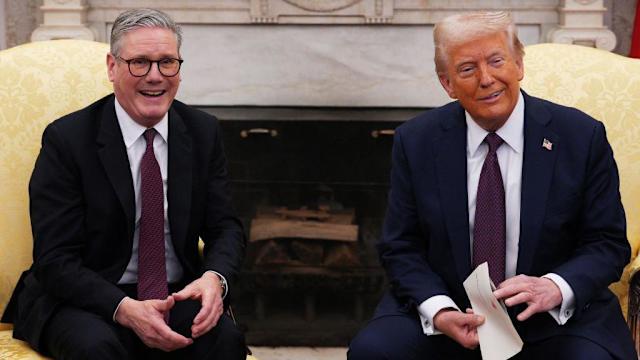The United States and the United Kingdom have reached a partial trade agreement that will reduce or eliminate tariffs on selected exports including British luxury cars, steel, aluminium, and beef, offering targeted relief for industries hit by former President Donald Trump’s protectionist measures. The deal reduces the recently imposed 25% car import tax to 10% for up to 100,000 vehicles annually, a significant development for manufacturers such as Jaguar Land Rover and Rolls Royce. However, most goods will still face a 10% duty, and analysts said the agreement falls short of restoring pre-2024 trade conditions between the two allies.

Speaking from a Jaguar Land Rover facility in the West Midlands, Prime Minister Keir Starmer lauded the agreement as a “fantastic platform” that protects thousands of British jobs, calling the US “our greatest ally.” At the White House, President Trump also praised the deal, calling it a “great deal” and insisting it marked only the beginning of deeper trade cooperation. Trump rejected claims that the deal was being oversold, insisting that it was a “maxed out deal that we’re going to make bigger.”
The deal includes a reduction of tariffs on steel and aluminium, which were hiked earlier this year to 25%, along with new reciprocal access to beef exports. UK officials said the country had secured a quota of 13,000 metric tonnes for British beef, though that figure was not confirmed by the US, which emphasized the agreement’s potential to open a $5 billion market for its own agricultural exports, including $700 million in ethanol and $250 million in other farm goods. US Agriculture Secretary Brooke Rollins emphasized the deal’s importance, saying it offered major new opportunities for American farmers.
The announcement comes amid warnings that thousands of jobs in UK car manufacturing were at imminent risk due to heightened US tariffs. UK Business Secretary Jonathan Reynolds told the BBC that the agreement prevented devastating layoffs and secured crucial export pathways. He described the talks as “very serious,” with British carmakers facing collapse without a breakthrough.
Despite optimism from government officials, reactions across the political and business spectrum have been mixed. UK Steel Director General Gareth Stace praised the deal as “major relief” for a sector that had struggled under punitive tariffs. But some trade groups expressed hesitation, with Duncan Edwards, CEO of BritishAmerican Business, saying it was an improvement but far from a full recovery: “It’s better than yesterday but it’s definitely not better than five weeks ago.”
While Labour MPs broadly welcomed the deal, opposition leaders were more critical. Conservative Party Leader Kemi Badenoch argued that the agreement lacked parity, with the UK making concessions while the US preserved or expanded tariffs in other areas. “This is not a historic deal,” Badenoch said. “We’ve been shafted.” Liberal Democrat leader Ed Davey echoed that sentiment, warning that Parliament must be given a chance to scrutinize the details. “The devil will be in the detail,” Davey said. “Trump’s trade tariffs are still hitting key British industries.”
Reform UK leader Nigel Farage struck a more optimistic tone, calling it a “step in the right direction” and citing it as a Brexit benefit. “The important point is that we are making a move,” Farage told the BBC. “It’s proof that post-Brexit trade flexibility is working.”
On the US side, the deal has been welcomed by key agricultural stakeholders. The National Cattlemen’s Beef Association called the agreement a “tremendous win,” while the US Meat Export Federation said it was still working to verify specifics of the changes. It remains unclear whether the UK made any concessions on longstanding American demands regarding pharmaceutical imports or food safety standards. The UK insisted that food standards would not be weakened and noted that British companies will receive “preferential treatment” in some US sectors, though legal experts said the substance of that promise has yet to be clarified.
Trump has signaled plans to pursue further tariffs on pharmaceuticals as part of his push for US manufacturing dominance in critical sectors. Economists and trade analysts, including Oxford Economics Deputy Chief Economist Michael Pearce, cautioned against overstating the agreement’s economic impact, saying no adjustments to forecasts would be made until more details emerge.
As the two nations move forward, the latest deal represents a cautious rebalancing of a transatlantic trade relationship that has endured heavy strain under Trump’s earlier tariff policies. While hailed as progress, it stops short of a full trade pact and leaves lingering questions about long-term commitments on both sides.


